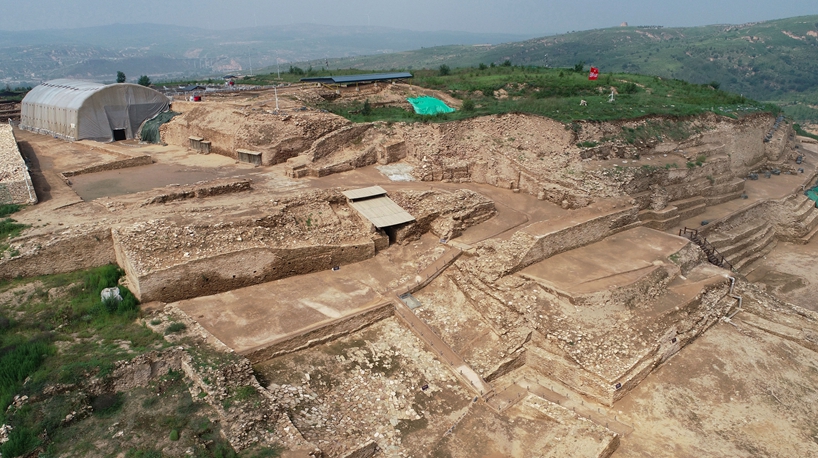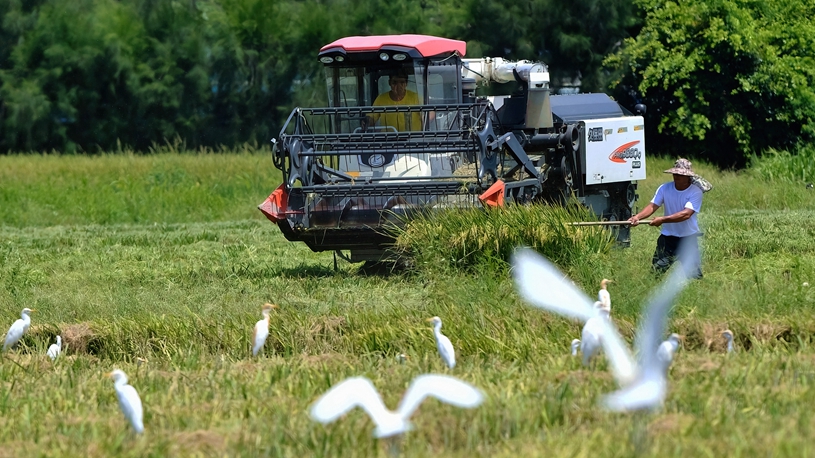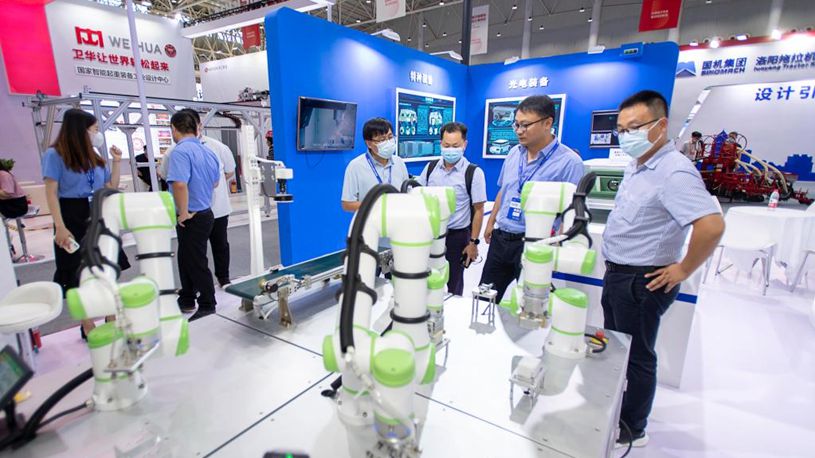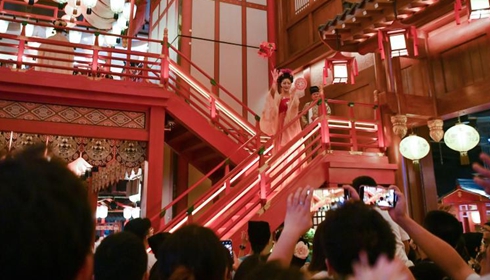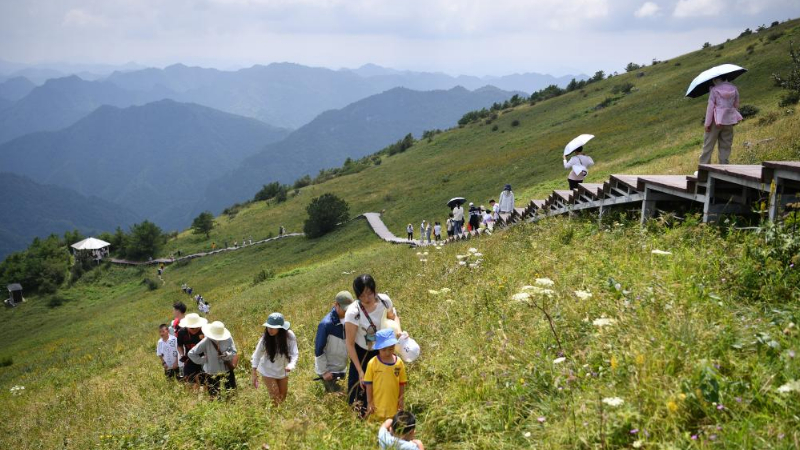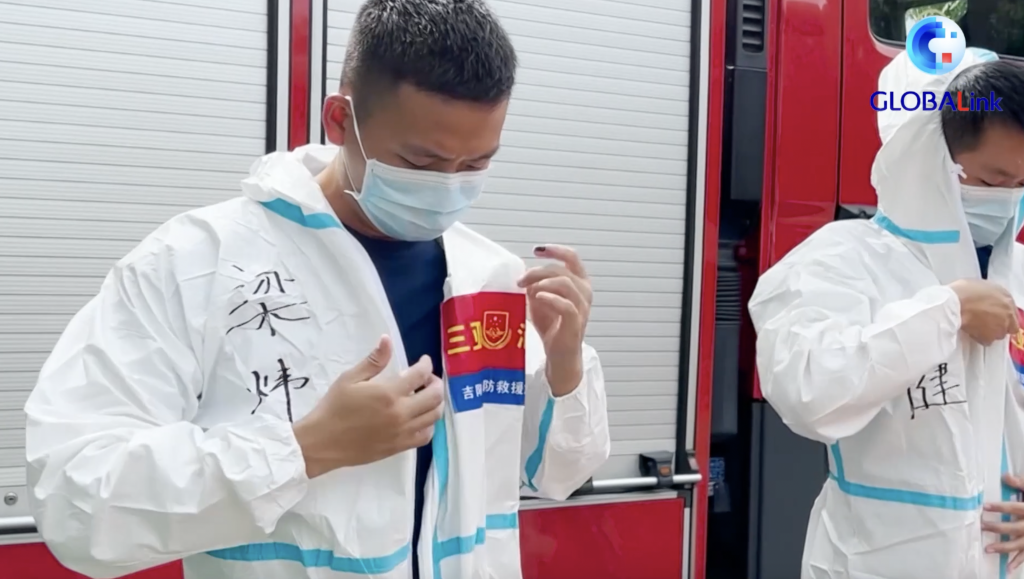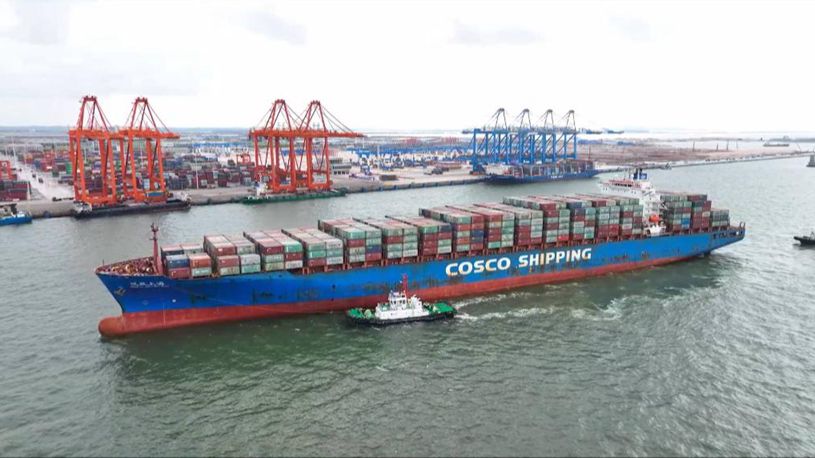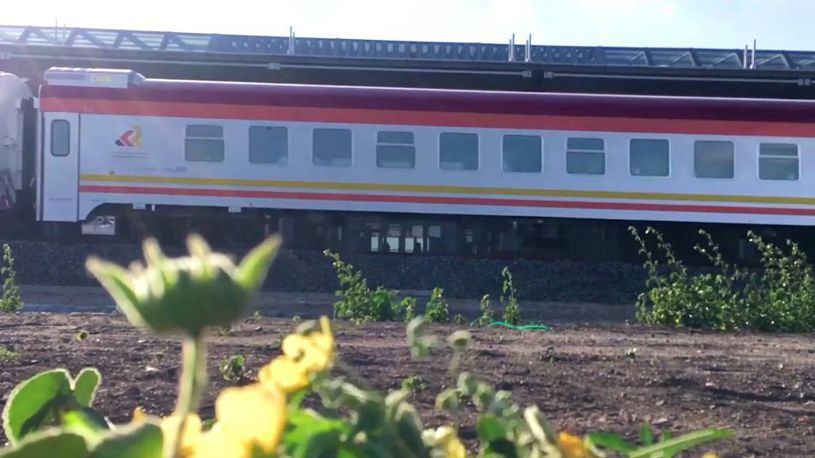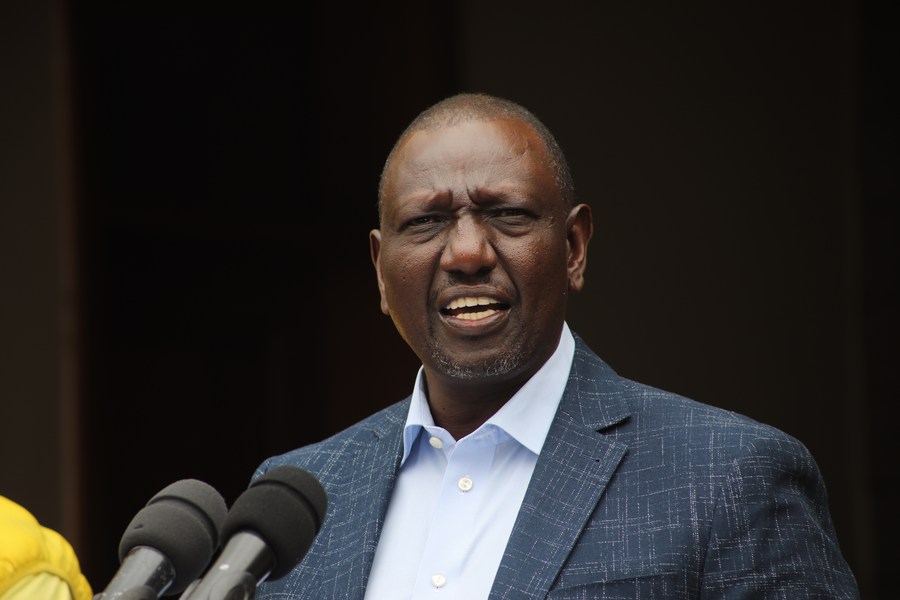
William Ruto, presidential candidate under the United Democratic Alliance (UDA) party, addresses journalists in Nairobi, capital of Kenya, Aug. 4, 2022. General elections are scheduled to be held in Kenya on Aug. 9, 2022. (Photo by Fred Mutune/Xinhua)
Kenya's sitting deputy president William Samoei Ruto is contesting the presidency under the Kenya Kwanza (Kenya First) Alliance in the Kenya 2022 general elections scheduled for Tuesday.
NAIROBI, Aug. 8 (Xinhua) -- Kenya's sitting deputy president William Samoei Ruto, who is contesting the presidency under Kenya Kwanza (Kenya First) Alliance in the Kenya 2022 general elections scheduled for Tuesday, was born on Dec. 21, 1966.
Like any other rural child born when Kenya had just gained independence from British colonialists, Ruto went to public primary and secondary schools even as he assisted his parents to carry out several chores including herding goats and tending to the farm.
At one point, Ruto used to sell indigenous chickens by the roadside to help his parents supplement household income, a past he relishes narrating to local and foreign audiences to describe his hardscrabble roots.
It was while pursuing a major in zoology and botany at the University of Nairobi in the early 1990s when Ruto dabbled with student politics, which earned him the recognition of officials at the then ruling party, Kenya African National Union (KANU).
In 1992, Ruto joined the Youth for KANU lobby that campaigned vigorously for the late President Daniel Arap Moi, who was facing stiff competition from a rejuvenated opposition.
When he turned 31 in 1997, Ruto won the Eldoret North parliamentary seat in Uasin Gishu County, in the Rift Valley, joining the ranks of youthful leaders who were ready to take over the reins of the ruling party KANU.
During the 2002 general elections, Ruto teamed up with Moi's preferred successor and the current President Uhuru Kenyatta to face off a united opposition.
The relatively youthful Kenyatta, however, lost the quest for the presidency to Mwai Kibaki, Kenya's late third president, and together with Ruto and other youthful KANU leaders, Kenyatta later became the official opposition in the country.
It was while campaigning against the draft constitution in 2005 when Ruto's mobilization skills came to the fore, enabling him to cut deals with a formidable opposition that was emerging to challenge Kibaki's grip on power.
When Kenya held hotly general elections in December 2007 that eventually morphed into deadly skirmishes and displacement of civilians, Ruto was in the opposing camp with Kenyatta, but both were later indicted by the International Criminal Court (ICC) for allegedly instigating the chaos. The ICC, however, withdrew the charges of crimes against humanity against Kenyatta in December 2014. It also withdrew the case against Ruto in April 2016 for lack of sufficient evidence.
The duo again closed ranks in 2012 and merged their political parties to form the Jubilee Party that catapulted Kenyatta to the presidency during the March 2013 general elections, with Ruto becoming his deputy.
Ruto has been a formidable player in national politics for more than nine years as the deputy president and despite falling out with Kenyatta in 2018 when the latter shook hands with opposition leader Raila Odinga, the 56-year-old is still determined to scale heights, with the presidency the ultimate prize.
Soon after falling out with Kenyatta politically in 2018, Ruto has been traversing the country with his loyal troops to endear himself to the masses, in readiness for a stab at the presidency.
Together with lawmakers who support him, Ruto walked out of the ruling Jubilee Party to join a nascent party called United Democratic Alliance (UDA) that he used to bargain with other national leaders and form a giant coalition called Kenya Kwanza (Kenya First) that has nominated him to run for the presidency.
In the last four years when he was seen as acting as an outsider in government, Ruto has been promoting the bottom-up economic model to appeal to the low-income masses.
Ruto's main challenger is Odinga, a veteran opposition leader. The two are running neck and neck in the polls.
Ruto's critics accuse him of promoting populist economic policies that could destabilize the country's social and political order but he has vowed to soldier on for the long haul, with the hope of clinching the presidency, despite humble roots. ■

